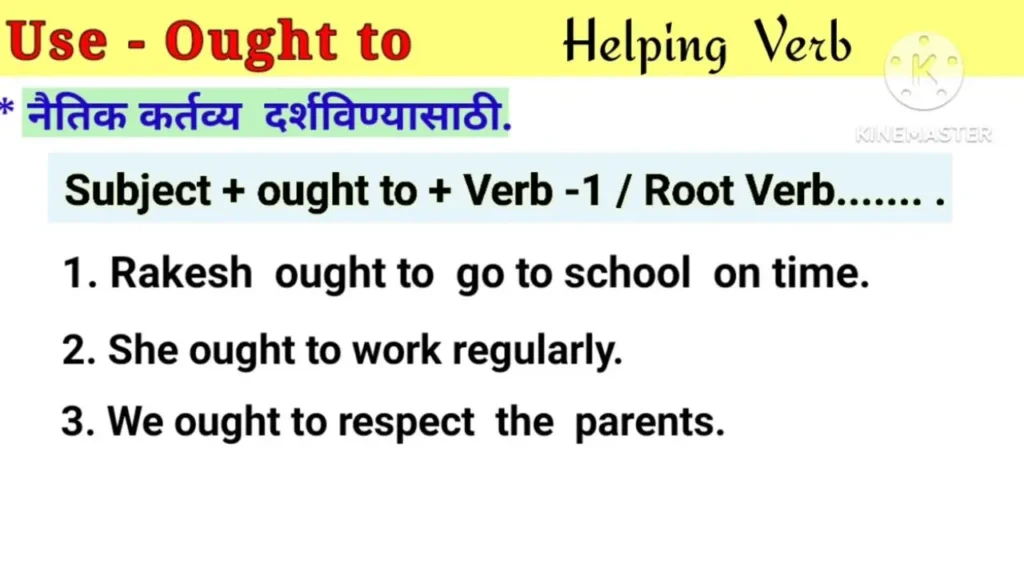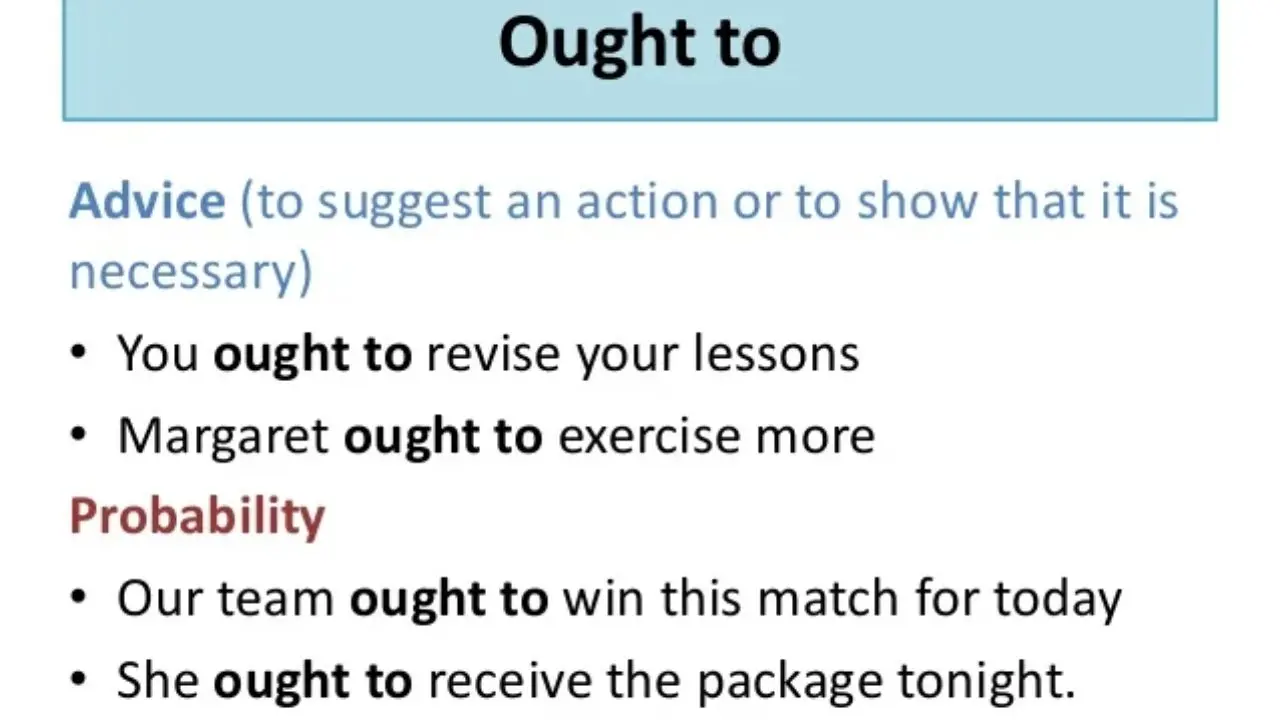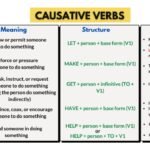Use Of Ought to: Ought To is a Modal verb, Which is used in everywhere, besicaly it used to indicate to show Moral Action and Regret.
Ought to” is a modal verb phrase used in English to express duty, advisability, or expectation. It is similar in meaning to “should” but can sometimes imply a stronger sense of obligation or correctness. Here are some key points about its use:
5 Rules To use Ought To
Rule 1 : Moral Action
Ought To is used to show a moral action.
Examples:
- We ought to help those in need.
- She ought to treat everyone with kindness.
- He ought to donate to charity regularly.
- They ought to speak up against injustice.
- You ought to respect your elders.
Rule 2 : Regret
Ought to is also used to show regret.
Note : This structure sees the subject having a moral responsibility to perform an action during the past life, which he regrets not having completed.
Example:
- I ought to have studied harder for the exam.
- She ought to have apologized for her mistake.
- They ought to have taken the warning seriously.
- He ought to have helped his friend when he had the chance.
- We ought to have planned the trip better.
Rule 3 : Expressing Duty Or Obligation
It is your responsibility or duty to finish your work.
Examples :
- You ought to submit your report by the end of the day.
- He ought to take care of his younger siblings while his parents are away.
- They ought to follow the company’s safety protocols.
- She ought to respect the rules of the community.
- We ought to pay our bills on time.
Rule 4 : Giving Advice
To give advice someone in Critical Situation
Examples:
- You ought to see a doctor immediately if you’re feeling chest pain.
- She ought to report the incident to the authorities right away.
- They ought to evacuate the area if there’s a fire.
- He ought to call for help if he feels unsafe.
- You ought to rest and avoid stress if you’re feeling overwhelmed.

Rule 5 : Expressing & Expectation
Ought to is also indicate Expressing & Expectation from someone
Example:
- The bus ought to arrive at 8 AM.She ought to be here by now.The weather ought to improve by the weekend.They ought to finish the project by the deadline.This plan ought to work if we follow it carefully.
Ought To is Uses In Sentences
Affirmative Sentence :
Ought to is also uses for Affirmative Sentence to positive ways.
Example:
- You ought to eat more vegetables for better health.
- He ought to complete his assignments on time.
- They ought to listen carefully during the meeting.
- She ought to practice the piano every day.
- We ought to recycle more to help the environment.
Negative Sentence :
Ought to is uses in Negative Sentence or Negative word also to stop someone who is doing Negative Work.
Example:
- You ought not to lie to your friends.
- He ought not to spend so much money on unnecessary things.
- They ought not to skip their daily exercise routine.
- She ought not to drive so fast in residential areas.
- We ought not to ignore the warnings about the storm.
Questions :
To ask questions Ought to is used.
Example:
- Ought we to visit our grandparents this weekend?
- Ought he to apologize for his behavior?
- Ought they to start the project now?
- Ought she to tell the truth about what happened?
- Ought I to bring a gift to the party?
Usage Notes :
- “Ought to” is often considered slightly more formal than “should.”
- In negative sentences and questions, “ought” is often contracted to “oughtn’t” in informal speech.
- In American English, “should” is more commonly used than “ought to.”
Examples:
- She ought to arrive on time for the meeting. (Formal suggestion)
- He oughtn’t to eat so much junk food. (Informal contraction in a negative sentence)
- Ought we to inform them about the change in plans? (Formal question)
- They oughtn’t to have spoken to him like that. (Informal contraction in a negative sentence expressing regret)
- You ought to apologize for your mistake. (Formal suggestion)
- Oughtn’t he to ask for permission before borrowing your car? (Informal contraction in a question)
- We ought to be more considerate of others’ feelings. (Formal suggestion)
- You oughtn’t to believe everything you hear. (Informal contraction in a negative sentence)
- Ought she to attend the conference next week? (Formal question)
- He ought to know better than to make such a mistake. (Formal suggestion)

Ought To in Voice
| Active Voice | Passive Voice |
|---|---|
| In the active voice, “ought to” is used to express a duty or obligation performed by the subject. Structure: Subject + ought to + base form of the verb Examples: She ought to finish her homework. They ought to support the new policy. You ought to call your parents more often. He ought to apologize for his mistake. We ought to attend the meeting tomorrow. | In the passive voice, “ought to” is used to indicate that the action is expected to be performed by someone or something, and the focus is on the action itself rather than the doer. Structure: Subject + ought to + be + past participle Examples: The report ought to be submitted by Friday. Mistakes ought to be corrected before the final submission. The problem ought to be addressed urgently. All documents ought to be reviewed by the manager. The rules ought to be followed strictly. |
| Active Voice emphasizes who is performing the action. | Passive Voice emphasizes the action itself or the recipient of the action. In the passive voice, “ought to” is typically followed by “be” and the past participle form of the verb. |
Read Also:






